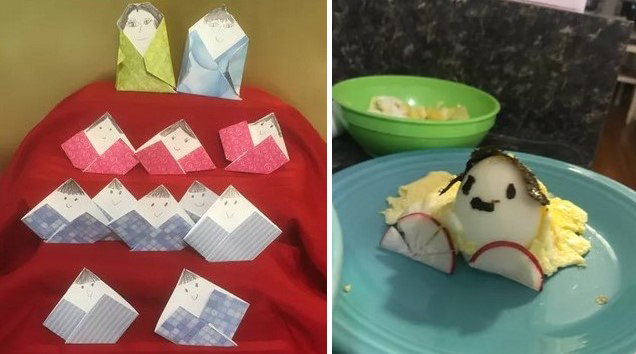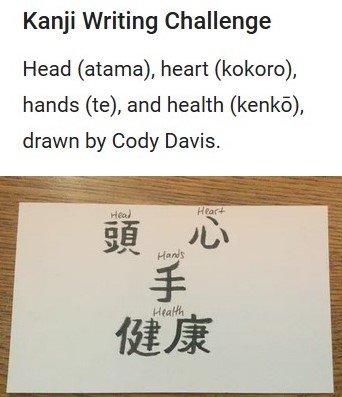Japan Girls’ Day: A cultural learning opportunity for youth and adults
Let’s learn about the Japanese holiday of Girls’ Day, which is held on March 3.

In the Michigan State University Extension article “Japan Golden Week: A cultural learning opportunity for youth and adults,” readers learned about Children’s Day, also known as Boys’ Day. Continuing our dive into this cultural learning opportunity, this article will focus on the Japanese holiday of Girls’ Day, which is held on March 3.
Due to the success of the Japanese Children’s Day virtual program, a collaboration was formed with the president from States’ 4-H International Exchange Programs, Japan program manager from Soga Japan Center at Western Michigan University, and staff and 4-H volunteers from Kentucky 4-H and Michigan 4-H. The planning committee of 10 members included four teen leaders for an engaging youth-adult partnership. The committee launched a virtual, four-session program with the aim of providing education about Hinamatsuri, otherwise known as Japanese Girls’ Day.

Over 30 individuals participated in the Japanese Golden Week Children’s Day that Michigan and Kentucky 4-H provided on May 5, 2020. The participants gained general knowledge about Japan, cultural awareness, and had fun while making new connections and gaining new skills. The program was positively received. After learning about Boys’ Day, participants requested another cultural learning experience about Girls’ Day.
The collaborative planning committee decided to make the educational experience longer, offering four 1-hour separate segments leading up to the March 3 celebration. We had 197 families, including 295 youth and 181 adults, register to participate! Among the 295 youth were more than 100 4-Hers from across the country joining to learn about Girls’ Day and its traditions, such as why it is celebrated and the meaning of Hina dolls. Participants also watched a video tour of a Japanese home, getting a glimpse into daily life in Japan.

Across each session in the series, participants continued their deep dive into Japanese culture and tackled hands-on activities like Origami paper folding or cooking Japanese dishes with Capt Cook, Chef Brinn. Participants, which included whole families, individual youth participants and entire 4-H clubs, were introduced to Girls’ Day traditions through photos and artifact sharing, as well as hearing from guest speakers and participating in hands-on experiences including videos, music, language, exercise routines and cultural crafts.
Teen planning committee member and Michigan 4-Her, Hayden Graves, summed up her Girls’ Day experience with a Haiku:
Peach blossoms, clam soup,
Dolls in full courtly attire,
Hinamatsuri!

While the Japanese Girls’ Day Celebration Series was a cultural learning opportunity for youth, participating adults also had a blast! The 4-H teen leader planning committee members enriched the program and strengthened the importance of youth-adult partnerships.
Michigan 4-H has worked with States’ 4-H International Exchange Programs for many years. The successful collaboration between Kentucky 4-H, the Western Michigan University Soga Center, and Michigan 4-H will hopefully continue and result in more virtual cultural learning opportunities.
Enjoy learning about other educational global and cultural opportunities by visiting the Michigan 4-H International Events page. Michigan State University Extension and the Michigan 4-H Youth Development program help to prepare youth as positive and engaged leaders and global citizens by providing educational experiences and resources for youth interested in developing knowledge and skills in these areas.
For more information about 4-H learning opportunities and other 4-H programs, contact your local MSU Extension office. Visit the Michigan 4-H International Exchange Programs for information on hosting exchange students or traveling.



 Print
Print Email
Email



